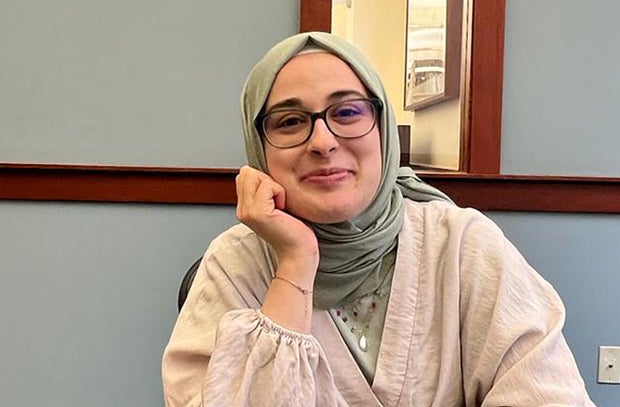In a significant legal development, Rumeysa Ozturk, a Turkish doctoral candidate at Tufts University, was released from immigration detention following a judge’s order that underscored concerns about the potential violation of her First Amendment and due process rights. The case has attracted attention due to the unusual circumstances surrounding her detention, which her legal team attributed to her authorship of an opinion piece published in a university newspaper. This event triggers broader discussions on academic freedom and the rights of international students in the United States.
The Arrest and Legal Proceedings
Rumeysa Ozturk had been studying in the U.S. under a student visa when she co-authored an op-ed in the Tufts student newspaper discussing the Israeli-Hamas conflict. Unbeknownst to her, this would lead to a chain of events culminating in her visa revocation and subsequent detention. In late March, shortly after the publication of the op-ed, Ozturk was taken into custody by agents dressed in plain clothes near her residence in Somerville, Massachusetts. The reasons provided for the revocation of her visa included allegations of her engaging in activities undermining U.S. foreign policy and potentially supporting a designated terrorist organization—allegations that were strongly disputed by her and her supporters.
Her arrest was followed by a transfer across several states, eventually placing her in an immigration facility in Basile, Louisiana. This rapid sequence of relocations played into the federal judiciary handling of her case, leading to jurisdictional debates and a slew of legal challenges filed by her defense.
Judicial Interventions and Bail Hearing
The proceedings took a turn when U.S. District Judge William Sessions presided over Ozturk’s bail hearing. Judge Sessions explicitly pointed out the absence of credible evidence linking Ozturk to any security threat or criminal behavior. He highlighted the substantial First Amendment issues raised by her detention based merely on a published opinion piece. During the hearing, no substantial evidence was presented by the government, relying instead on the vague rationale behind the visa revocation.
Following the judge’s decision, Ozturk was released from the facility, allowing her to return to her community and academic pursuits in Massachusetts without travel restrictions. The emotional scene of her hugging her lawyer became a poignant symbol of her ordeal and the relief that followed the judge’s order.
Community and Institutional Support
Throughout this period, Ozturk received significant support from her academic community and international student advocates. Tufts University, represented by spokesperson Mike Rodman, expressed relief at the court’s decision to grant bail and reaffirmed their support for Ozturk, highlighting her standing as a student and the university’s commitment to academic freedom and expression.
Further testament to this support was illustrated during the trial proceedings where individuals such as Ozturk’s doctoral advisor and her personal physician provided testimonies. These interventions painted a broader picture of her contributions to academic life and the personal health risks posed by continued detention, especially considering her diagnosed asthma condition, which had reportedly worsened due to confinement.
Implications and the Wider Context
The case of Rumeysa Ozturk is not isolated but reflects broader tensions surrounding free speech, immigration enforcement, and the precarious position of international students in the U.S. The revocation of visas based on political expressions or affiliations raises alarming questions regarding the enforcement of immigration laws and the protection of constitutional rights.
As legal proceedings continue, with a full hearing set to deliberate more extensively on her confinement’s legality, the academic community and civil rights advocates watch closely. This case could potentially set significant precedents concerning the rights of international scholars and the boundaries of academic freedom.
In Conclusion
Rumeysa Ozturk’s ordeal underscores the complex interplay between national security, individual rights, and academic freedom. Her release, while a relief to her and her supporters, opens up several avenues for legal and social discourse on the protections afforded to non-citizens and the ethical dimensions of immigration law enforcement in context of global educational exchange.
As this case continues to unfold, it will undoubtedly serve as a critical point of reference in debates over the rights of students and scholars traversing the delicate interstices of international relations, freedom of expression, and the pursuit of knowledge.









